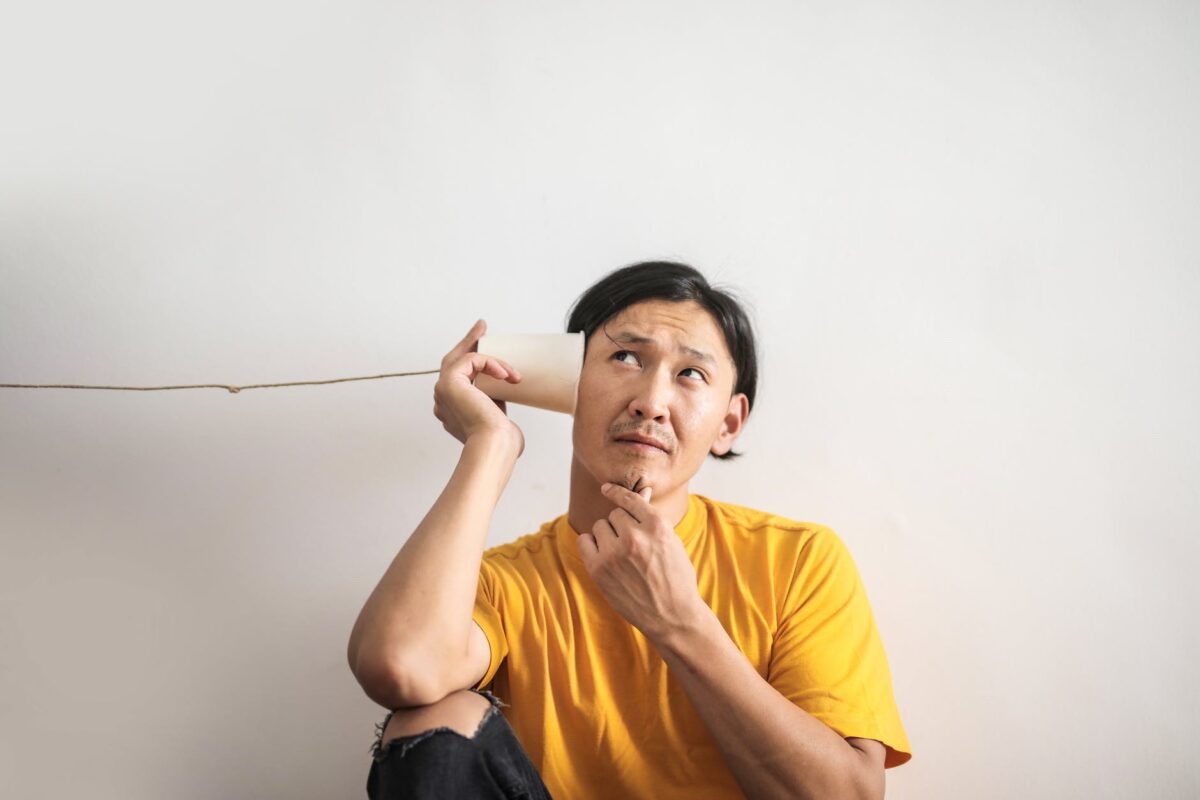When’s the last time you listened to someone in conversation? Like, really listen—not just wait for your turn to talk? I catch myself doing this all the time. Instead of focusing all of my attention and energy on solely and actively listening to the person in front of me, I am preemptively loading a response in my mind, multi-tasking between listening and preparing to talk, giving just enough “uh-huhs” and head nods to feign concentration while I wait for just the right time to insert my comment… is that just me? Well, it turns out there’s science behind some of those mental acrobatics. Multi-tasking both receiving new ideas and trying to formulate new ones to communicate outwars enables us to have back-and-forth conversation more effectively, but it doesn’t necessarily encourage us to be more active listeners.
In light of our current conversation around racial injustice, political divide, the rage and lament circulating about what our proper response to systemic racism should be, debates around protests/rioting/looting, and arguments around law-making and policy proposals among other things… I believe that active listening is more important than ever right now. I don’t know about you, but lately I see and am a part of so many conversations that start off innocently enough, but then move quickly from mutual listening and sharing to full on “fight-or-flight” response. I can tell when I’m switching from empathetic listening to judgmental listening when: my emotions swell, my body gets tense or stiff, I feel the need to defend myself or ward off pre-supposed judgment, or I’m busy thinking of a rebuttal or when to interject my next thought. A good litmus test for all of this: if you are mentally noting a phrase or statement someone said that you took offense at, just so you can respond, you are probably listening to judge or to condemn, not listening to empathize or to learn.
Sarah Werner, one of the writers and podcasters I listen to, said that “we live in a world of megaphones right now.” Social media and the internet has exemplified this metaphor. Let me start by saying there are plenty of good reasons to speak up. At this point in time, it might be highlighting injustice and important issues around race and equality that are important and need to be talked about. But I also think there is always a good reason to listen well. Active listening is really trying to understand another person’s point of view. Active listening is empathizing with someone else’s experiences. Active listening is receiving and accepting someone else’s emotions, not simply dissecting their words or mentally refuting their argument. Active listening is opening yourself up to learn. When you listen and truly consider someone else’s expressed opinion, not just hear their words so you can condemn their lack of knowledge or insensitive phrasing around a subject… you should be in a posture of trying to understand—to the point of being able to accurately represent their opinions and feelings were you to try and communicate that to someone else! You need to be humble enough to pause your own immediate reactions or thoughts that may be contrary to what the other person is expressing. You should presume the assumption that the other person’s experience is equally—if not more—valuable than your own experiences.
Here are some phrases I found myself using to turn away from “combative listening” back to “active listening”:
-
“That’s a good insight”
-
“I never thought about that.”
-
“You’re helping me understand better.”
-
“Oh, I see”
-
“I hear you”
-
“Thank you for sharing”
-
silent nodding
-
rephrasing what your conversation partner just said
My last thought: it’s important to consider in what manner we are listening and engaging in our conversations, but active listening is not a catch-all to excuse yourself from engaging in the conversation entirely (more on that later). It depends on where you start off as in individual, and who you are interacting with. As an Asian American, I’m aware that sometimes my tendency is to only listen and to never speak or share my own experiences.
I appreciated how someone at my church started one of our reflections on race conversations by saying, “I just want to be sensitive to my own identity as a white male. I’ll share my thoughts because you asked me for my thoughts, but so far I’ve really focused this past week on just being a good listener to other people.” That statement in itself inspired and encouraged me. A think a productive conversation starts by striving for more active, humble, and seeking-to-understand kind of listening.
Question: Where does active listening fit in the context of a blog? Please leave comments or contact me personally—I would love to listen to anyone who wants to share.

Be First to Comment